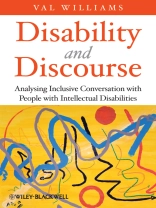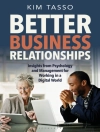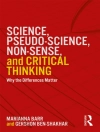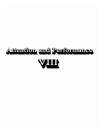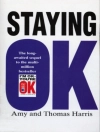Disability and Discourse applies and explains Conversation
Analysis (CA), an established methodology for studying
communication, to explore what happens during the everyday
encounters of people with intellectual disabilities and the other
people with whom they interact.
* Explores conversations and encounters from the lives of people
with intellectual disabilities
* Introduces the established methodology of Conversation
Analysis, making it accessible and useful to a wide range of
students, researchers and practitioners
* Adopts a discursive approach which looks at how people with
intellectual disabilities use talk in real-life situations, while
showing how such talk can be supported and developed
* Follows people into the meetings and discussions that take
place in self-advocacy and research contexts
* Offers insights into how people with learning disabilities can
have a voice in their own affairs, in policy-making, and in
research
Mục lục
About the Author.
Preface.
Acknowledgements.
1 Starting Points.
2 Some Building Blocks for Analysis.
Part 1 Individual Voices.
3 Challenging Disempowering Patterns of Talk.
4 Supporting Someone to be Competent.
5 Opening up Conversation.
6 Equalising Talk and Friendliness.
7 Doing Autonomy: ‘It’s entirely up to you’.
8 Public Encounters.
Part 2 Collective Voice.
9 Self-Advocacy Talk: The personal to the political.
10 Supporting People to Speak up in Group Situations.
11 Being Interviewers with the Label of ‘Intellectual
Disability’.
12 Behind the Scenes in Inclusive Research: ‘We are the artists
of our lives’.
13 Talk about Labelling and Identity.
14 Reflections on Doing Analysis.
15 Reflections on Change.
Appendix Transcription Conventions.
References.
Index.
Giới thiệu về tác giả
Val Williams is a Senior Research Fellow at the Norah Fry
Research Centre, University of Bristol, UK ? a leading centre for
research into services for people with intellectual disabilities
based on a social model of disability. Her work concerns the
barriers faced by adults with learning disabilities, with
particular emphasis on inclusive research and analysis of
naturally-occurring communication.
